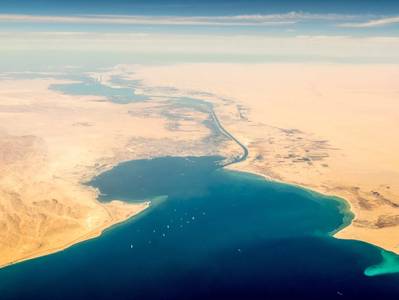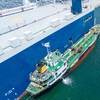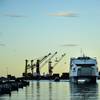FMC Mulls Investigation into Suez and Panama Canal Impacts
The US Federal Maritime Commission (FMC) held an informal public hearing examining impacts from attacks on merchant shipping in the Red Sea and Gulf of Aden on February 7.
Opening the hearing, Commissioner Carl Bentzel, voiced concern about safe access through both the Suez and Panama Canals.
“What is at stake is severe international economic disruption. The United States is still recovering from the aftershock of the pandemic induced supply chain disruption that that saw 30% increases of imported container shipping resulting in congestion suppressing the delivery of critical supplies to health care providers, consumers and the manufacturing industry.
“In my view, the impacts of inflation were largely caused by the delays in shipping. I believe that most Americans still do not fully understand the level of importance that international ocean shipping plays to our economy.
“Ocean shipping moves over 90% of our international trade. Reductions in ocean shipping cannot be overcome, aviation alternatives cost 8-10% more and with pricing and volume limitations cannot do more than supplement maritime trade – as they used to say, ‘mostly reserved for fine chocolates, perfume and tulips’. So, there is a lot at stake as we consider the impacts of what is approaching to be closure of one of the major maritime superhighways, and 50% reductions of the other.”
Bentzel said that at present, cargo is moving smoothly, there is some additional capacity at marine terminals, and the equipment providers and intermodal rail and trucking are aware of pending challenges as ocean carriers adjust. Ocean carriers have orders for new ships being delivered that can be plugged in to help address reduced shipping capacity as ocean carriers will have to order diversions because of circumstances in both Panama and the Suez Canals.
“We also have a little bit of time, as the implications of ocean shipping events tend to lag behind cargo put ashore today, reflecting shipping conditions that existed four or five weeks earlier when that ship departed a foreign port. However, make no mistake about it, in two-or three-months, shipping conditions will have changed.”
Reductions of service caused by drought in the Panama Canal are amounting to close to 50% in total transit availability, and reductions in carrying capacity of those shipping lines able to transit the canal are being reduced in volume by amounts of 5-15% because of low water.
“The longer these impacts linger, the greater the economic impact. Already we are hearing of factory closures of automobile manufacturing in Europe as a result of shipping related supply chain disruption, and we are just in the beginning of this challenge.”
He said that the most important obligation of a shipowner, is to protect the safety of merchant marine personnel operating their vessels, and the security of their ships.
“That said, the FMC has the duty and requirement to protect the public from unreasonable shipping practices, and while I understand the need for price increases to reflect additional shipping operational costs caused by the Trans-Oceanic Canal crisis, the FMC may be called upon to question the legitimacy of new charges or other shipping practices.
“Congress recently empowered the Commission with the passage of the Ocean Shipping Reform Act of 2022, and in addition to new regulatory authorities, we have been provided additional funding for enforcement resources to protect the shipping public. So, I feel that we are in a good position to ensure that we can police against potential market abuse.”
Not since, the days of the Barbary Pirates have we faced such a challenge in the protection of our shipping, he concluded. “Accordingly, I am evaluating the potential applications of either the provisions of section 19 of the Merchant Marine Act, 1920, or the Foreign Shipping Practices Act to assess whether we could initiate an investigation to determine whether the actions in Yemen cause ‘unfavorable conditions to shipping in the foreign commerce.’
“Because of the general level of regional instability there could be challenges to the application of the law, however, I believe that the international importance of protection of navigational freedom provides an overriding impetus to evaluate a potential investigation.”
The FMC heard from 10 participants representing the perspectives of shippers, ocean common carriers and ports.












